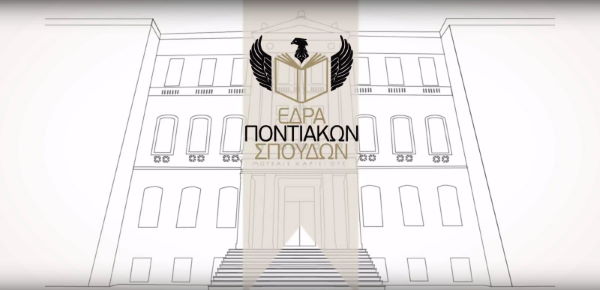Endowed Chair of Pontic Studies

The Endowed Chair of Pontic Studies AUTh was founded in May 2017, after a bilateral agreement signed by the Aristotle University of Thessaloniki and the Ivan Savvidis Charity Foundation (May 2016). The Chair belongs administratively to the Deanship of the Faculty of Philosophy and is part of the Department of Modern and Contemporary History of the School of History-Archeology.
Undergraduate courses offered, two in each semester, are eligible for students of the Department and of other Departments and Schools as well, as Compulsory Optional or Free Optional. The field of study is relevant not only to Pontus but to all Hellenism of Anatolia, and the chronological span include the Fall of Constantinople and Komnenian Empire until 1922.
Students learn about the history of the Greeks of Pontus and Asia Minor, get in touch with historical sources, carry out scientific work, visit archives and museums, are provided with all the necessary knowledge and are introduced to all kinds of sources, either for postgraduate studies or for their better training regarding their work in the secondary education.
The Chair is staffed by Assistant Professor of Aristotle University of Thessaloniki Kyriakos Chatzikyriakidis and her research associate, Doctor of History Theodosis Kyriakidis.
The Scientific Working Group of the Chair of Pontic Studies is not confine itself to its teaching and research work. High on its priorities (see the following link: http://www.hist.auth.gr/el/ponticstudies) is the development of relationships and partnerships with other academic institutions, research centres and archives of Greece. Above all, however, what is important is the cooperation with universities, research centres and historians abroad, dealing with relevant scientific issues. Τhe organisation and participation in international scientific conferences in Greece and abroad, the invitation of Greek and foreign researchers for lectures, events, and courses, the organisation of summer schools and the exchange of students, and of course the communication with the Greek Diaspora are also envisaged.
